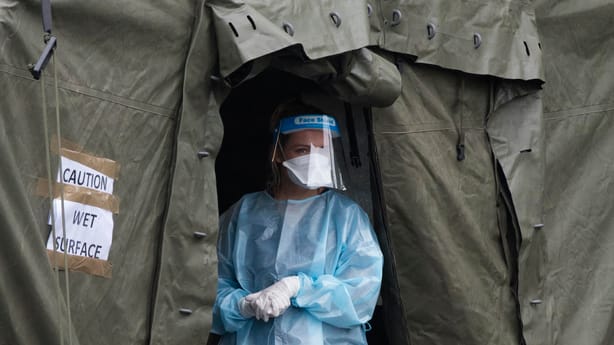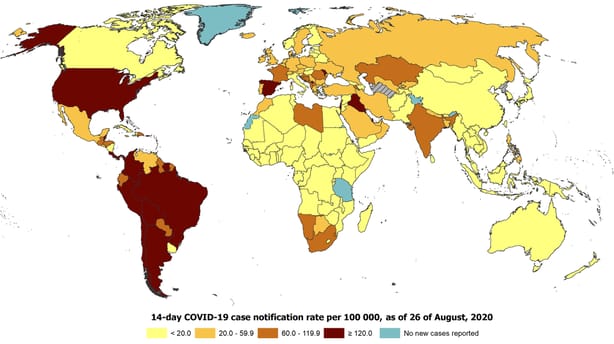There have been 164 new cases of Covid-19 reported, the Department of Health has said, with no further deaths.
This brings the total number of confirmed cases to 28,363, while there have been 1,777 Covid-19 related deaths.
93 of the cases reported were in Dublin, with 22 in Kildare, 10 in Tipperary, nine in Cork and eight in Carlow.
There were six cases each in Waterford and Offaly, with the remaining 10 cases in Galway, Kilkenny, Limerick, Louth and Roscommon.
65% of the confirmed cases involve people under the age of 45.
80 of the 164 cases are associated with outbreaks or are close contacts of a confirmed case, while 21 were identified as community transmission.
Acting Chief Medical Officer, Dr Ronan Glynn, has said we "have seen a significant number of cases in Dublin, Kildare, Tipperary, Limerick, Cork and Carlow over the past number of days".
"I would urge people everywhere to follow the public health advice and reduce mixing of households where at all possible".
He added that "as we head into Autumn when people are more likely to have cold or 'flu-like symptoms please do not adopt a wait and see approach.
"The greatest protection you can give your family and friends is to isolate as soon as you have any symptoms and contact your GP by phone," Dr Glynn said.
He added that here should be no charge for either a consultation with your GP or for a Covid-19 test.
We need your consent to load this rte-player contentWe use rte-player to manage extra content that can set cookies on your device and collect data about your activity. Please review their details and accept them to load the content.Manage Preferences
This comes after the Economic and Social Research Institute said research showed that almost half of people do not know that calling their GP to discuss Covid-19 symptoms is free.
The ESRI said that over a third of people think they could be charged for a test, which the study says could delay or deter people from arranging a test if they experience symptoms.
Read: Latest coronavirus stories

The survey also found that a majority of people held negative views about those who test positive for Covid-19.
The ESRI says that despite how easily the virus spreads, over 70% of people across all socio-economic groups believed that someone who contracts the disease has been careless or reckless in following public health advice.
It says that fear of being blamed may be a barrier to arranging a test quickly when symptoms appear.
The research involved 1,000 adults and was conducted in July.
Another 72 people have been diagnosed with Covid-19 in Northern Ireland.
Stormont Health Minister Robin Swann has expressed concern about the rising number of infections over recent weeks in areas such as Belfast.
The Stormont Executive has relaxed a number of coronavirus restrictions but moved to cut the numbers allowed to congregate indoors and outdoors earlier this month in response to the resurgence of the virus.
A total of 384 have tested positive over the last seven days, the Department of Health said. No new deaths were recorded.

The latest figures show that the 14-day cumulative number of cases of Covid-19 in Ireland for every 100,000 people is 28.5, according to the European Centre for Disease Control.
It is higher than the UK at 22.5 cases, Germany at 20.7 cases and Italy at 16.5.
The Irish figures are lower than Spain at 183.1 cases, France at 65.6 and Belgium at 49.7 and Sweden at 36.8.
Meanwhile, the Minister for Health has said that if there is a second wave of Covid-19 the Government will have "to consider the very blunt weapon that is a lockdown" but it is doing everything it can to avoid it.
Stephen Donnelly told the Oireachtas Special Committee on Covid-19 Response that the focus from now until Christmas will be on suppressing Covid-19 while reopening society.
Acting Chief Medical Officer Dr Ronan Glynn said the coronavirus restrictions in Co Kildare are being kept under "close review".
In relation to schools reopening, Dr Glynn said that NPHET expects and hopes, from a public health perspective, that the vast majority of older children in primary schools should be maintaining a distance of one metre between each other.







